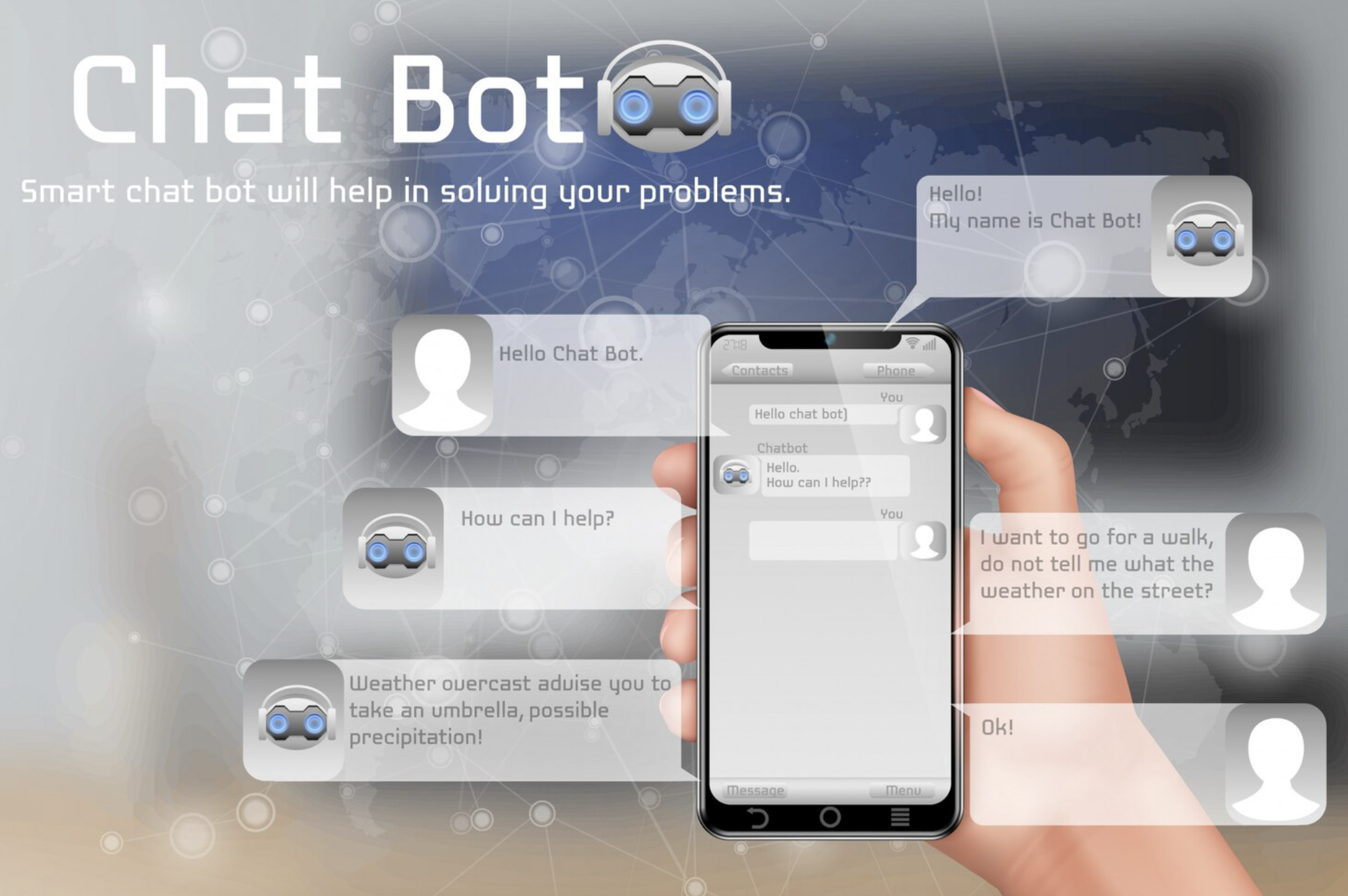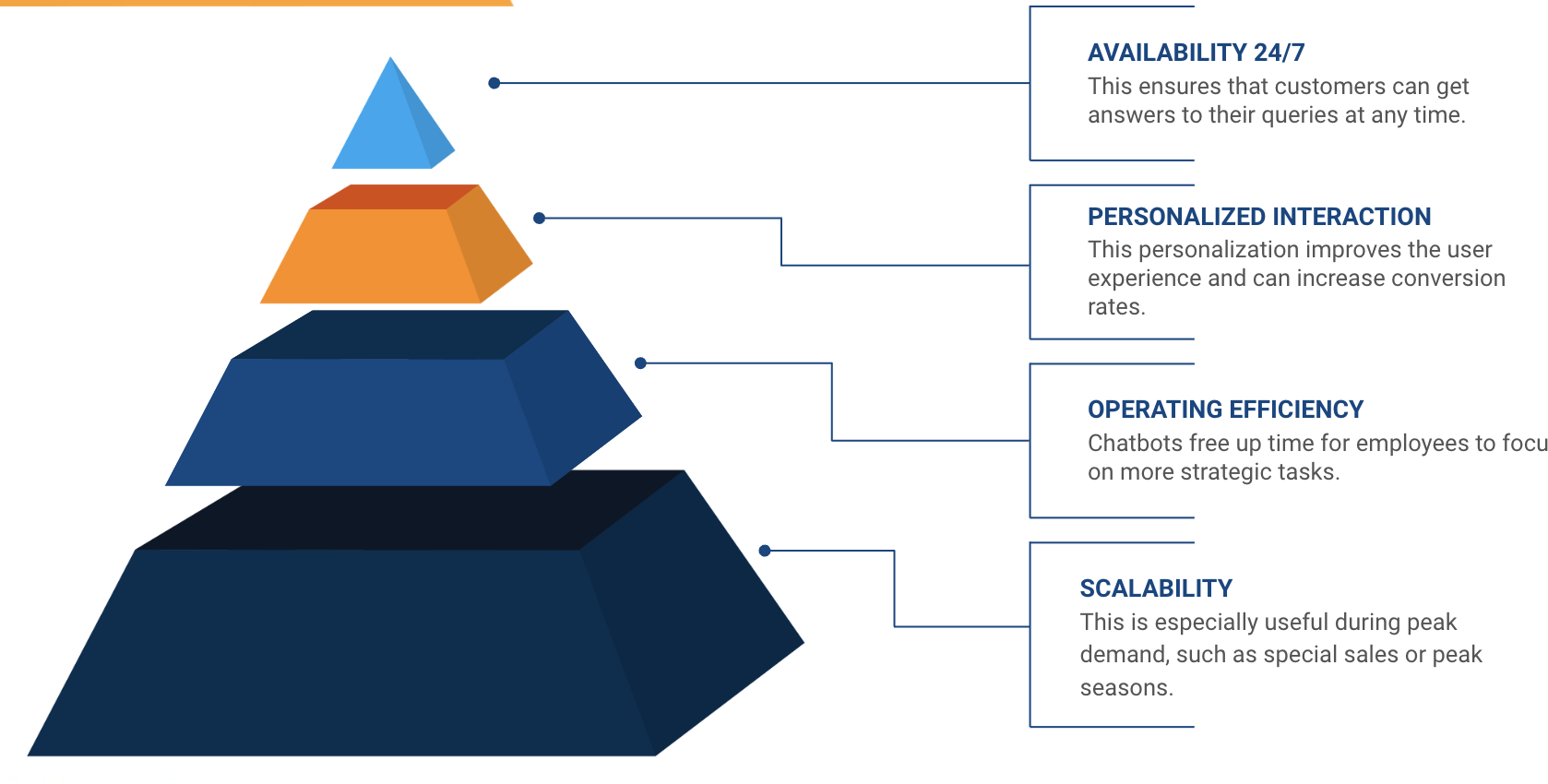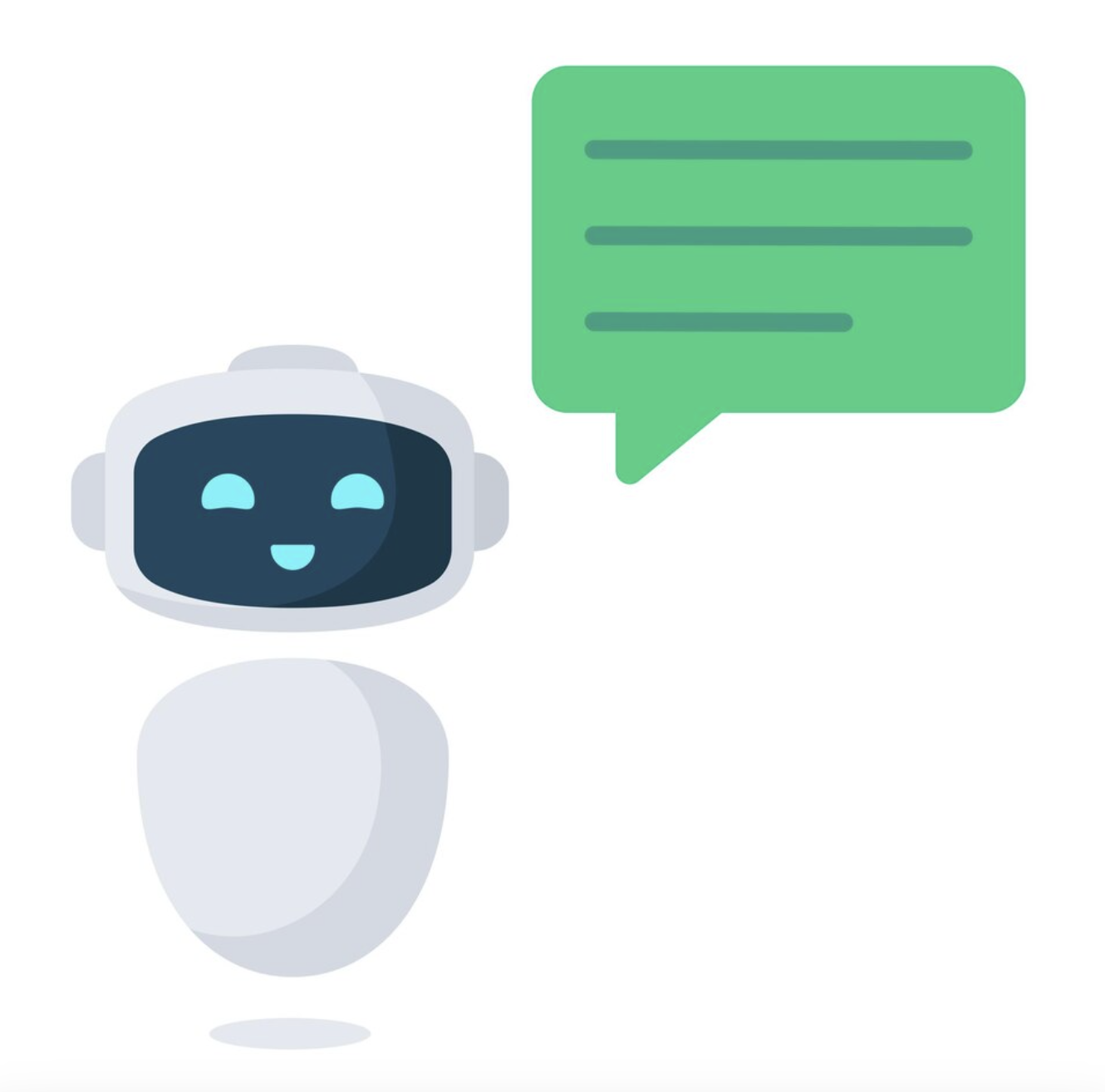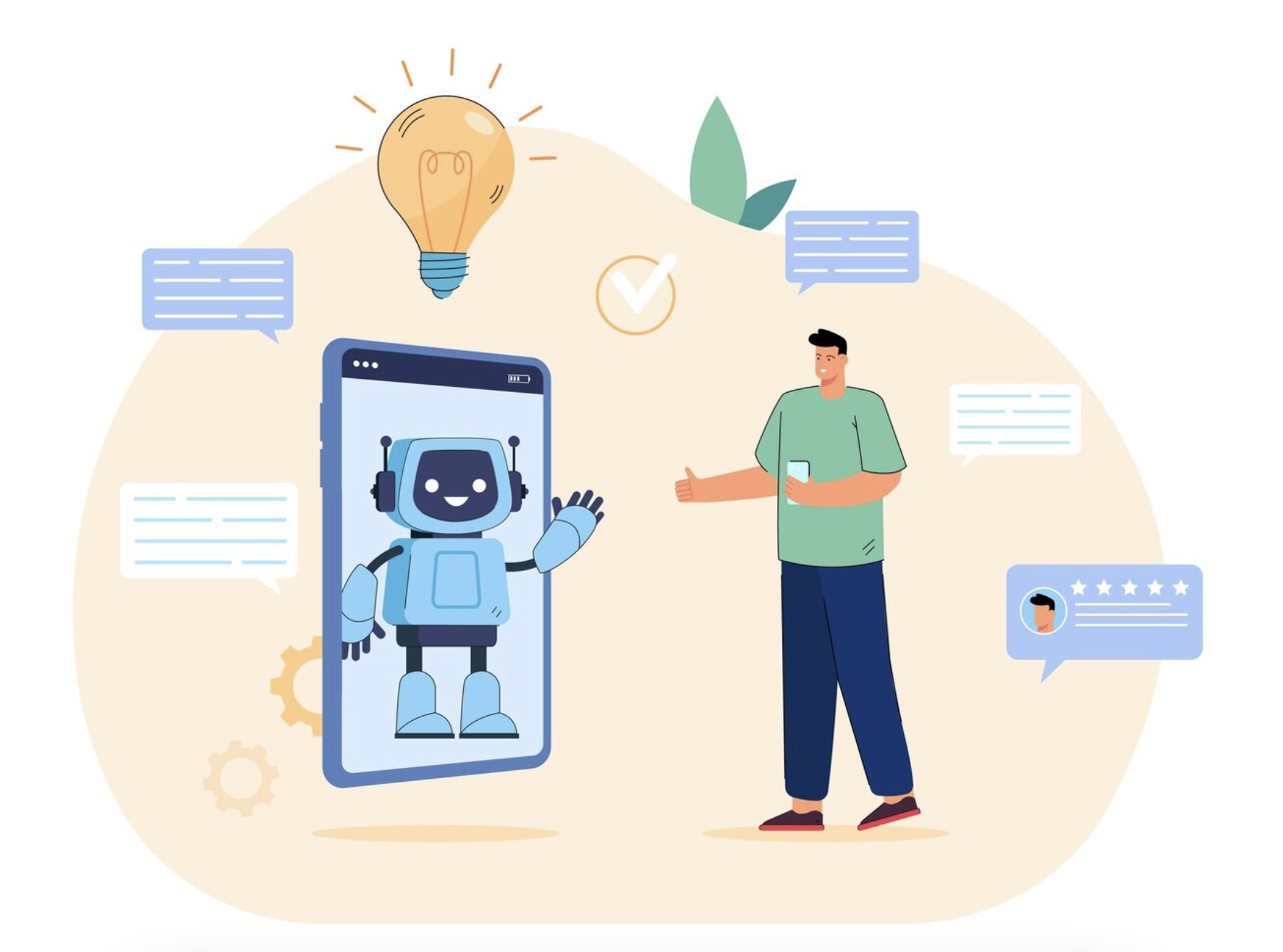
How chatbots are transforming business communication
August 01, 2024
Table of contents
Quick Access

Business communication has evolved dramatically, driven by technological innovation. One of the most significant developments in this area is the use of chatbots for businesses. These artificial intelligence (AI) tools are revolutionizing the way companies interact with their customers, offering more efficient, personalized and accessible experiences.
In this blog we want to explore how chatbots are transforming business communication, their benefits, challenges and success stories that demonstrate their positive impact in various industries.

How chatbots are transforming business communication in the digital age
The Evolution of Business Communication
Business communication has gone from being a one-way process, where companies sent messages to their customers through traditional means such as postal mail and telephone, to an interactive and real-time model thanks to digital technologies. In this context, chatbots have emerged as a crucial tool to facilitate more dynamic and effective communication.
Benefits of Chatbots for Business
1. Availability 24/7
One of the main benefits of chatbots is their ability to offer 24/7 customer support. This ensures that customers can get answers to their queries at any time, improving customer satisfaction and brand loyalty.
2. Personalized Interaction
Chatbots use customer data to personalize interactions, offering recommendations and responses tailored to individual needs and preferences. This personalization improves the user experience and can increase conversion rates.

3. Operational Efficiency
By automating repetitive tasks, such as answering common questions or processing orders, chatbots free up time for employees to focus on more strategic tasks. This not only reduces operating costs but also improves overall business efficiency.
4. Scalability
Chatbots can handle multiple queries simultaneously without compromising the quality of service. This is especially useful during peak demand, such as special sales or peak seasons, where quick response capabilities are crucial.

Chatbot Implementation Challenges for Businesses
Although chatbots offer numerous benefits, their implementation is not without challenges:
- Understanding Natural Language
Despite advances in NLP, chatbots can still struggle to understand human language, especially in the case of dialects, slang, or complex queries. This can lead to incorrect or inaccurate answers.
- Integration with Existing Systems
Integrating chatbots with existing systems and databases can be a technical challenge. It is essential to ensure that the chatbot can access up-to-date and relevant information to provide accurate responses.
- Maintenance and Continuous Updating
To remain effective, chatbots must be maintained and updated regularly. This includes adjusting your responses based on user feedback and updating your capabilities to reflect changes in products, services, or company policies.
Chatbot Success Stories for Business
1. Spotify
Spotify uses a chatbot on Facebook Messenger to help users discover new music and create personalized playlists. The chatbot interacts with users in a friendly manner, recommending songs based on their music preferences and listening behavior.
2.Starbucks
Starbucks has implemented a chatbot in its mobile app that allows customers to place orders using voice or text commands. This chatbot also offers personalized recommendations and notifications about order status, improving the customer experience and streamlining the purchasing process.
3. Bank of America
Erica, Bank of America's chatbot, provides customers with personalized financial assistance. Users can interact with Erica to learn about their accounts, make payments, receive spending alerts, and get personalized financial advice.
4. KLM Royal Dutch Airlines
KLM has integrated a chatbot into Facebook Messenger that provides passengers with flight updates, boarding passes and check-in reminders. This not only improves the passenger experience, but also reduces the customer service workload.

Future of Chatbots in Business Communication
The future of business chatbots is bright, with several emerging trends that promise to further improve their effectiveness:
1. Advanced AI Integration
As AI continues to evolve, chatbots will be able to perform more complex tasks, such as better understanding the context of conversations and detecting emotions in users' language.
2. Voice Chatbots
With the rise of voice-enabled devices such as Amazon Alexa and Google Assistant, voice chatbots are expected to become an integral part of business communication, allowing users to interact more naturally and fluidly.
3. Increased Security and Privacy
As chatbots handle more personal and financial data, security and privacy will become a priority. Companies will need to implement robust measures to protect user information and comply with data protection regulations.
Chatbots are transforming business communication in the digital age by offering faster, more personalized and more efficient interactions. Although its implementation presents challenges, the potential benefits far outweigh the difficulties.
As technology continues to advance, chatbots will become an increasingly valuable tool for businesses looking to stay competitive in an ever-changing market.
For managers and business leaders, investing in chatbots is not only an opportunity to improve customer communication, but also a key strategy to drive growth and success in the digital age.
Do you need to develop a chatbot for your business? At Rootstack, we have +14 years of experience supporting companies in their digital transformation. Contact us.
We recommend you this video
Related Blogs

Women in Tech 2024: Increasing their presence in the development world
-11.35.59-a.m.png)
Mulesoft's Potential for IT Staff Augmentation Teams
-10.33.09-a.m.png)
Data integration challenges in the era of Big Data
-4.07.58-p.m.png)
Why Atlanta is the key destination for software development
-10.19.48-a.m.png)
Cloud Migration: Best Practices for a Successful Transition
-2.21.21-p.m.png)